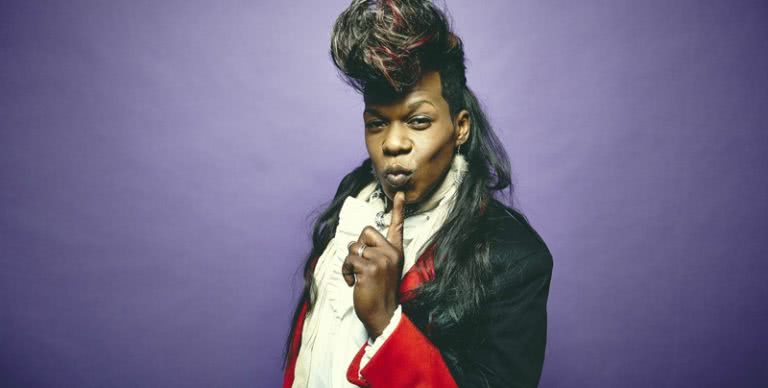New Orleans is a city of many distinctions. It’s a place populated by strong personalities that refuse to conform. It’s home to Cajun and Creole cuisine, po’ boys, gumbo, red beans and rice, and beignets. It’s a place that knows how to party – the city’s annual Mardi Gras makes our own version seem modest. New Orleans has also given birth to some of the most significant music of the last 100 years.
It started with traditional jazz and such legendary artists as Jelly Roll Morton and Louis Armstrong. Then came the early rock’n’rollers, like Fats Domino, and gurus of funk The Meters.
More recently, a uniquely New Orleanian hip hop offshoot emerged: bounce music. Originating in the early ’80s, bounce tracks typically feature highly energetic beats and an emphasis on chanted vocal refrains. And, as with just about everything from New Orleans, bounce is as much a culture unto itself as it is a product of culture. While bounce has had a fervent underground following since its inception, it stayed largely unrecognised outside of New Orleans for the first couple of decades. In recent years, however, popularity has skyrocketed. And there’s no bigger bounce music celebrity than Big Freedia.
“I’m very humbled about it,” says Freedia, who also goes by the name Freddie Ross. “It definitely did surprise me, how people gravitated to the culture of bounce music and to my music. I am very appreciative of all the people all around the world that have taken time out to even just listen to bounce music.”
Bounce music is inextricably attached to an especially physical style of dance. These days, the back-heavy dance craze, twerking, is something of garish cliche. But twerking is actually another New Orleans original and a key component of bounce music culture. Big Freedia heads our way in a couple of weeks for the Falls Festivals and a run of club gigs. A dance class, hosted by Big Freedia herself, will precede each of these shows – including at Oxford Art Factory on Friday January 2.
“There’s a dance workshop,” Ross says, “to make people more aware of the style of dancing that I do and for some people to be able to participate with me when I call people up onstage. That’s why I want to teach them how to shake their asses a little bit before we actually do it.”
Big Freedia’s music is laden with in-your-face hip hop beats and almost-aggressive chanting, but it’s all rooted in a sense of community. While Ross is now a global star, he doesn’t ignore the importance of the audience.
“That’s something I have to do, to connect with my fans and to let them know that I appreciate them and I love them. They are what keeps me going; the energy from them is what keeps the Freedia show going and what makes it the Freedia show.”
Even before meeting the star, it’s easy to feel like you know Big Freedia on a personal level. This is largely due to the reality TV series Big Freedia: Queen Of Bounce –the third season of which will air on Fuse TV early next year. Queen Of Bounce looks closely into Ross’ day-to-day life, which consists of studio time, touring and interactions with fans and loved ones. These days, Ross’ life itself has essentially become a form of entertainment, but there are certain things he keeps to himself.
“I definitely don’t give it all away. I definitely hold back. There’s a lot that the cameras don’t see. Most of the time they miss the really interesting and the really deep stuff. I still have total privacy in the bedroom and using restrooms and all of that. There’s still a whole lot of privacy, definitely, with this recording process.”
The distractions associated with living in the public eye haven’t impinged on Ross’ commitment to making music. He’s been a prominent bounce performer since the late 1990s, but Big Freedia’s first official LP Just Be Free didn’t come out until this June. It’s a collection of exceptionally positive and vigorously energetic bounce tracks, including ‘Turn Da Beat Up’, ‘Explode’ and ‘N.O. Bounce’. It also features a touch of EDM production, which shows Big Freedia won’t be confined to just one style.
“I am opening up to collaborating with different artists and producers,” says Ross, “so I’m taking my music to all different types of levels. We’re trying to change it, to keep making it roll and to keeping making me cross over to all types of genres of music. You’ll definitely be hearing some new and exciting things from me.
“It’s pretty natural that I’d develop the sound,” he adds, “because I’m open to all sounds and styles of music. You might hear anything coming from me, don’t be surprised. My style of music definitely comes with a lot of dancing, but there definitely will be some songs – I’m more than sure – that I make that are not directly leaning to just dancing.”
New Orleans is a city of inimitable originals and Big Freedia is certainly one of them. This quality seems inherently true of all the city’s natives, but maintaining such dazzling originality requires constant effort.
“I need to be productive at all times and be in the right frame of mind at all times, no matter what I do, musically,” Ross says. “You know, that comes with the territory. I have to keep pushing.”
Just Be Free out now through Queen Diva. Playing alongsideBlack Vanilla, Levins, DJ Sveta atOxford Art FactoryFriday January 2, tickets online.Also appearing alongside Alt-J, Jamie xx, SBTRKT, Joey Bada$$ and many more at Falls Festival, Lorne, Marion Bay and Byron Bay, Sunday December 28 – Saturday January 3.


































